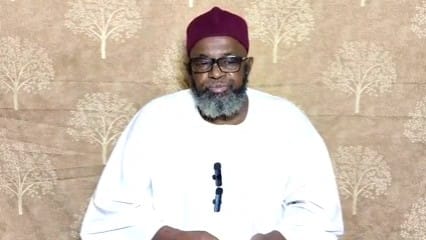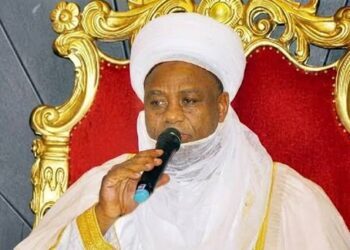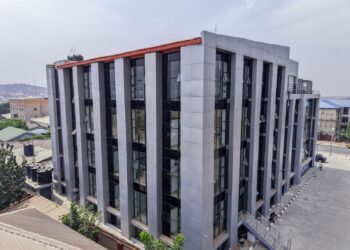An Islamic cleric, Sheik Abdulrahaman Azzamfari, has accused Zamfara State Governor Dauda Lawal, for his alleged failure to effectively respond to the persistent threat of armed banditry, leaving innocent civilians to bear the brunt of the devastating consequences.
Azzamfari has drawn a stark comparison between the current administration’s approach and that of the previous governor, Bello Mohammed Matawalle, asserting that Lawal’s governance lacks the necessary courage and resolve to combat the wave of violence effectively.
In a series of scathing video statements, the prominent cleric posited that bandits have sensed a power vacuum in the government, leading to an escalation in their attacks on vulnerable communities.
He noted that just in one year of the Lawal administration, Zamfara State, particularly Tsafe Local Government Area, is facing an unprecedented humanitarian crisis fueled by a complex interplay of insecurity, agricultural disruption, and socio-economic turmoil.
The cleric lamented that the State’s Governor Lawal appears to have either underestimated the severity of the crisis or has been living in isolation or in total denial or woefully ill-informed about the realities on the ground.
Azzamfari said: “Governor Lawal’s approach has lacked the necessary courage and resolve to combat banditry effectively and that Lawal has clearly failed to exhibit the urgency required to address the wave of violence, which has tragically resulted in more deaths, destruction of property, and widespread displacement in just one year than what was witnessed throughout Matawalle’s four-year tenure.
“This stark comparison places significant scrutiny on Lawal’s governance and raises questions about the strategies employed to ensure public safety in a state that has long suffered from the scourge of violent crime.”
The cleric posited that bandits have sensed a power vacuum in the government. With the absence of a decisive response to their activities, these criminal elements have felt emboldened, leading to an escalation in their attacks on vulnerable communities.
Azzamfari highlights a fundamental aspect of governance: the necessity for a strong and resolute leadership that prioritizes the protection of its citizens.
The Sheikh added, “In just one year of the Governor Lawal administration, Zamfara State, particularly Tsafe Local Government Area, is currently facing an unprecedented humanitarian crisis fueled by a complex interplay of insecurity, agricultural disruption, and socio-economic turmoil.
“In the eastern forest regions, where farming is a way of life, the conflict has rendered many agricultural lands untenable, jeopardizing the livelihoods of countless families. The serenity of the lush forest that connects the Giwa and Maradun regions has been supplanted by turmoil, pushing communities into a desperate state of existence.
“The recurrence of violence and lawlessness in Zamfara has created a paradoxical environment where the act of farming has become a treacherous undertaking. Although farmers have cultivated their lands, they face insurmountable challenges in harvesting their crops, risks that include violent reprisals from extremist groups that are reportedly operating with impunity.
“The farming prohibition imposed on refugees exacerbates an already dire situation, as those who seek solace in agricultural endeavors are met with hostility and potential retribution.”
He lamented that the State’s leadership, particularly the governor who is the chief security officer, appears to have either underestimated the severity of the crisis or has been leaving in isolation or in total denial or woefully ill-informed about the realities on the ground.
He said reports suggest that individuals have been reduced to conditions akin to slavery, trapped in a cycle of hunger and poverty with little to no assistance from the government tasked with their protection. In a region where food security has been shattered, basic necessities become luxuries, pushing many to the brink of survival.
Azzamfari stressed the pressing need for reconciliation among warring factions and societal groups within Zamfara because the very fabric that sustains these communities is fraying under the weight of violence and mistrust, which has been exacerbated by a growing culture of fear. Notably, Islamic clergy who advocate for reconciliation are subjected to threats and violence, illustrating a profound disregard for constructive dialogue. It is alarming to consider that the Ulama—figures vital to community development—are marked for elimination simply for espousing peace.
He lamented further that the setting up of volunteer forces by governor Lawal to enforce compliance with state policies raises ethical concerns. While the intent may be to restore order, empowering vigilante groups, especially in a volatile setting, only worsens the cycle of violence and further alienate the affected communities. A sustainable and peaceful resolution cannot be achieved through fear tactics or violent reprisals; it must involve strategic dialogue that incorporates all stakeholders, including the marginalized voices of the affected populace.
He advised that to begin mending the torn fabric of Zamfara, the government must prioritize open channels of communication and community engagement. It must also ensure that humanitarian aid reaches those in desperate need, establishing safe conditions under which farming can resume. Acknowledge the farmers, traders, and families who have persevered through adversity despite the odds stacked against them.
He warned that the current dependencies on violence and intimidation can lead only to further despair. It is imperative that the government not only acknowledges the reality of the situation but also actively engages in reconciliation efforts that restore hope and security for all residents.
The path forward must be paved with collaboration, empathy, and a firm commitment to rebuilding shattered lives and communities. Only then can the people of Zamfara reclaim their dignity and emerge from this disaster with resilience and strength.











